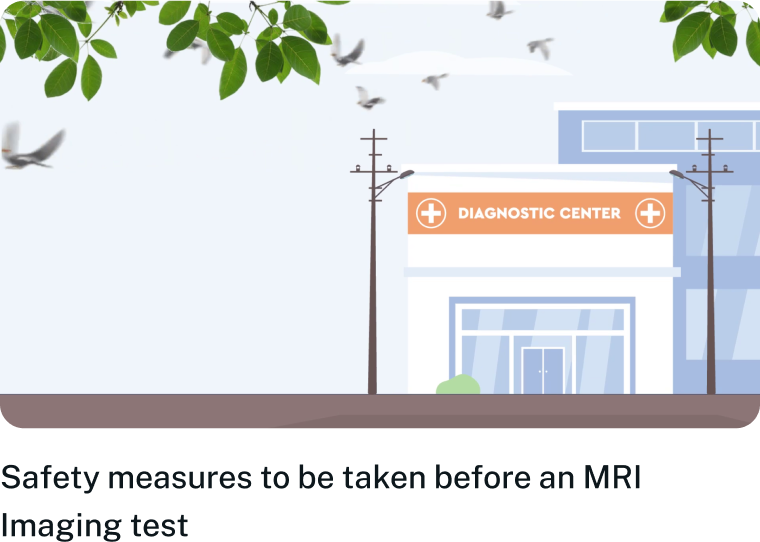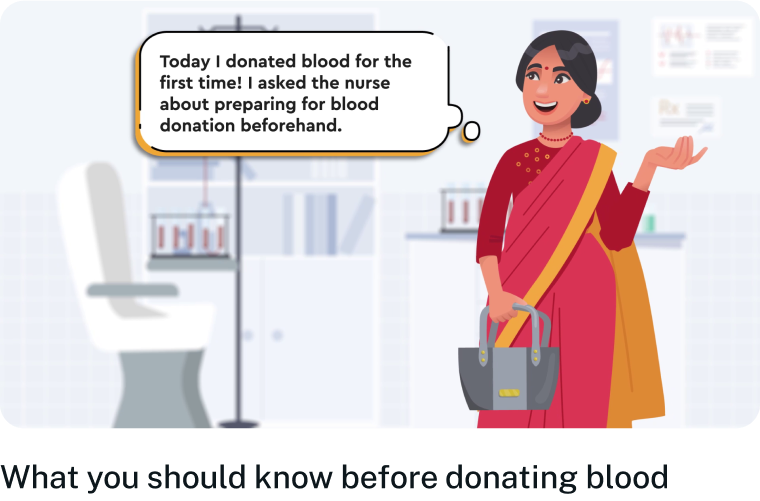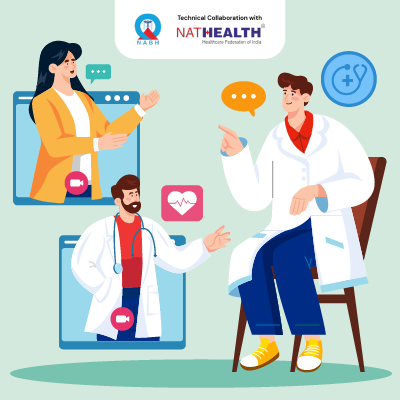Types of Tests
With the global progress in the healthcare system, there are a wide range of diagnostic tests available in India that cater to various health concerns. Here’s a brief overview of some of the most common tests.
Blood Tests
Blood tests analyse blood composition, including RBCs and WBCs, haemoglobin, blood sugar, and presence of hormones, antibodies etc
Urine Tests
Examines urine's composition to detect abnormalities or the presence of specific substances that might indicate underlying health problems, such as UTIs, diabetes or kidney disease.
X-ray
These use electromagnetic radiation to produce images of bones and internal organs; helpful for diagnosing fractures, joint problems, pneumonia, and some cancers.
CT Scans
These use X-rays to create detailed cross-sectional images of your body, providing a comprehensive view of internal structures compared to regular X-rays. Helpful for diagnosing injuries, internal bleeding and tumours etc.
MRIs
These use strong magnetic fields and radio waves to produce detailed images of organs, soft tissues, bones, and the brain. Helpful for diagnosing injuries, tumours, abnormalities in the brain or spinal cord.
Ultrasound
This technique uses sound waves to create images of internal organs, foetuses during pregnancy, and blood flow. It's painless and doesn't involve radiation.
Biopsy
A biopsy involves extracting a small tissue sample from an area of concern, which is then examined under a microscope for abnormalities or the presence of cancerous cells. They’re crucial for diagnosing cancers etc.
How to Prepare for Tests and what to Expect?
The process of medical testing can be time consuming coupled with anxiety and nervousness. Therefore, to indicate what one can expect from the process, we’ve enlisted key things to consider while preparing for the medical test.
- Medical History Disclosure: Inform your doctor about your complete medical history, allergies, medications and previous surgeries.
- Fasting Instructions: Certain tests might require fasting for a specific duration beforehand.
- Medications: Ask your doctor if you need to adjust or avoid any medications before the test.
- Valuables and Jewellery: It’s advisable to leave valuables and jewellery at home as they interfere with medical equipment like X-ray and MRI machines.
- Recovery: Depending on the test, you might need to rest for a while at the facility before going home.
- Test Results: The timeframe for receiving your test results vary depending on the test type. Your doctor will explain the results and their implications
Understanding Test Results
- Reference Ranges: These are the normal ranges for the test parameters being measured. The values obtained from your test are compared to these ranges.
- Interpreting Results with Caution: While you can see your results, it’s crucial to avoid self-diagnosis. Even if a value falls outside the reference range, it doesn’t necessarily indicate a definitive diagnosis.
What to Ask Your Doctor
- Overall Significance: Ask your doctor to explain the overall significance of your test results.
- Abnormal Results: If any of your results fall outside the reference range, inquire about what it means and the potential implications.
- Next Steps: Discuss the next steps based on your results. This could involve further testing, medication changes, or lifestyle modifications.
- Second Opinion: In some cases, you might want to seek a second opinion from another doctor for further clarification, especially if the results are complex or the diagnosis is unclear.
Video Gallery



Understanding Cost
- Type of Test: Complex tests using advanced technologies are generally more expensive than basic blood tests.
- Lab or Facility: Costs can differ between government hospitals, private labs, and corporate chains. Government hospitals typically offer lower charges, while private facilities might have a wider range of tests but at a higher cost.
- Insurance Coverage: If you have health insurance, check your policy coverage for diagnostic tests. The extent of coverage varies depending on your plan.
Govt Vs Private Test Costs
Government Hospitals
- Generally offer the most affordable option for diagnostic tests.
- May have limitations on the availability of certain advanced tests or longer waiting times.
Private Labs & and Diagnostic Chains
- Provide a wider range of tests, including advanced diagnostics.
- Costs can be significantly higher compared to government hospitals.
- Some chains might offer package deals for comprehensive health check-ups.
Health Insurance
- Many health insurance plans cover diagnostic tests partially or fully, depending on the plan and specific test.
- Check your policy documents or contact your insurance provider for details on coverage and claim procedures.
Tips for Managing Costs
- Type of Test: Complex tests using advanced technologies are generally more expensive than basic blood tests.
- Lab or Facility: Costs can differ between government hospitals, private labs, and corporate chains. Government hospitals typically offer lower charges, while private facilities might have a wider range of tests but at a higher cost.
- Insurance Coverage: If you have health insurance, check your policy coverage for diagnostic tests. The extent of coverage varies depending on your plan.
Sales Growth.
Our clients describe us as a product team which creates amazing UI/UX experiences, by crafting top-notch user experience of funny the century rather.
00%
Increased by
the last 2 years.
Choose a Service Plan.
Our clients describe us as a product team which creates amazing UI/UX experiences, by crafting top-notch user experience of funny the century rather.
Personal
- Core business process revision;
- Team management;
- Custom infrastructure;
- Custom design & features.
Corporate
- Core business process revision;
- Team management;
- Custom infrastructure;
- Custom design & features.
Frequently Asked
Questions.
How does the 14-day trial work?
When our team provides design and digital marketing. Applied arts can include industrial design, graphic design, fashion design. The app provides design and digital marketing.
How do I pay for your service?
When our team provides design and digital marketing. Applied arts can include industrial design, graphic design, fashion design. The app provides design and digital marketing.
How can I cancel my subscription?
When our team provides design and digital marketing. Applied arts can include industrial design, graphic design, fashion design. The app provides design and digital marketing.

